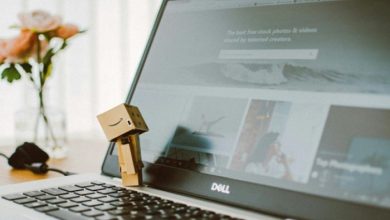
With remote work becoming the norm, managing a dispersed workforce is now standard. While it offers flexibility, it also brings challenges in maintaining productivity and accountability. Monitoring tools are emerging as a solution, providing real-time insights to foster transparency while respecting employees’ autonomy. Let’s dive into the key ways remote monitoring solutions are transforming the workplace and explore how they can be implemented effectively.
Why Is Accountability Crucial for Remote Work?
Accountability is the backbone of any successful team, whether in an office or working remotely. Using remote monitoring software to track work transparently helps employees stay motivated and focused. This visibility allows managers to identify roadblocks, redistribute workloads, and ensure goals are being met.
However, without face-to-face interactions, it’s easy for accountability to slip through the cracks. That’s where monitoring tools come in as a valuable resource. They bridge the gap by providing real-time insights into workflow without micromanaging.
How Does Remote Monitoring Work?
Remote monitoring solutions use advanced technology to track activities and provide data-driven reports. These tools can monitor time spent on tasks, applications used, and even website visits. Some software also offers productivity analytics, helping teams identify inefficiencies and improve time management.
The goal isn’t to snoop but to create a balanced framework that supports both employers and employees. With features like real-time updates and customizable dashboards, businesses can stay informed while allowing teams the flexibility they need to thrive.
Benefits of Using Remote Monitoring Solutions
- Enhanced Transparency
Clear communication about expectations is key. Remote monitoring tools allow managers to set benchmarks and track progress. Employees, on the other hand, gain access to their own performance metrics, fostering trust through mutual visibility. - Better Time Management
How much time is spent on productive tasks versus distractions? With detailed reports, monitoring tools can answer this question. Employees can self-reflect and optimize their schedules, while managers can offer tailored support to boost productivity. - Early Problem Detection
Workplace challenges, like bottlenecks or lack of engagement, often go unnoticed in remote environments. Monitoring solutions can flag issues early, giving teams the chance to resolve them before they escalate. - Improved Goal Alignment
Accountability improves when everyone is on the same page. With project tracking features, teams can align their efforts to meet deadlines and company objectives. This clarity benefits not just individual contributors but the organization as a whole.
Balancing Accountability and Employee Privacy
Employee privacy is a common concern with monitoring tools, making it essential to balance tracking productivity and maintaining trust. How can companies achieve this? Transparency is key. Employers should clearly explain the purpose of monitoring and what data will be collected. Customizing settings to focus only on work-related activities helps ensure fairness. Additionally, offering opt-in features or granting employees access to their data can build trust. With thoughtful implementation, monitoring tools can promote accountability without creating distrust.
What Makes a Great Monitoring Solution?
The best remote monitoring solutions prioritize usability, flexibility, and insightful analytics. They should seamlessly integrate into workflows without disrupting day-to-day activities. Look for features like:
- Real-time data tracking
- Detailed productivity reports
- Integration with existing tools
- Customizable permissions
Solutions that offer scalability are especially valuable, as they can grow alongside an organization. By addressing both employer and employee needs, these tools promote a balanced, productive work culture.
Accountability is a cornerstone of successful remote work, and remote monitoring software is an effective way to achieve it. By fostering transparency, improving time management, and identifying challenges early, these tools benefit both organizations and their employees. While concerns around privacy are valid, thoughtful implementation and open communication can help mitigate them. When used ethically, remote monitoring solutions create a win-win situation: businesses stay on track, and employees feel supported.




